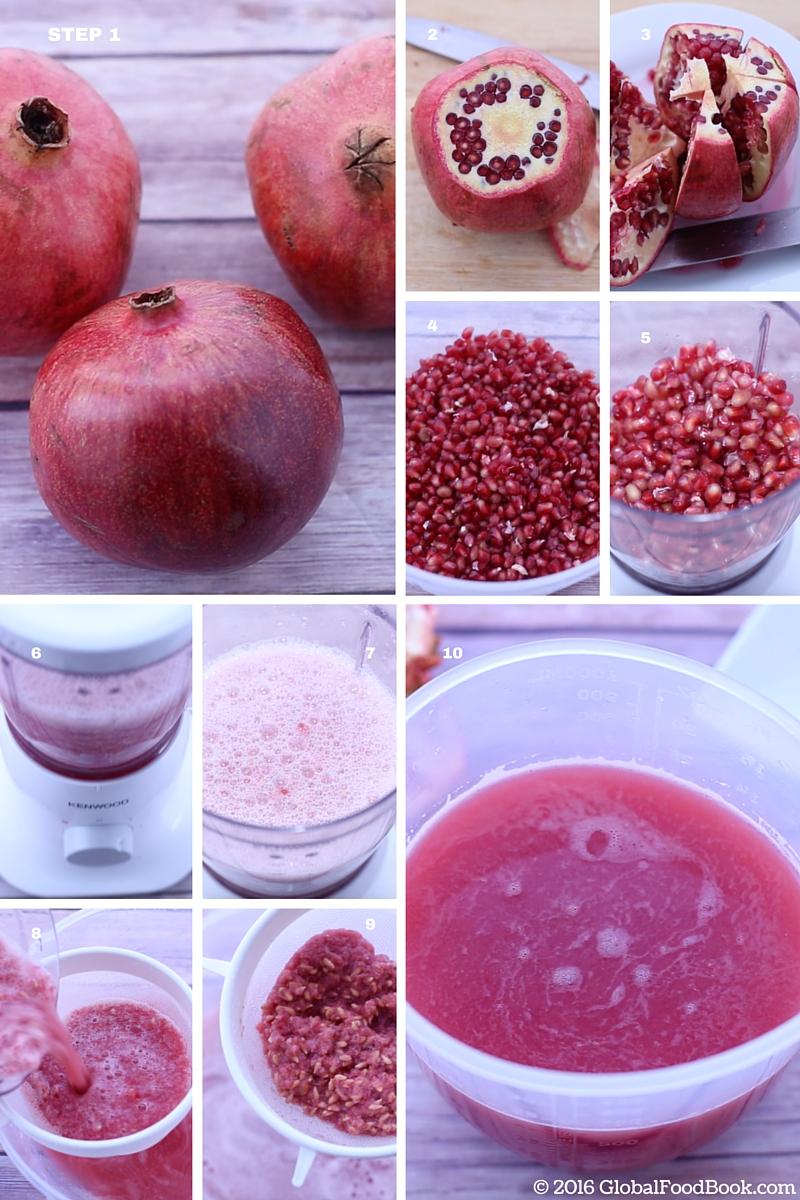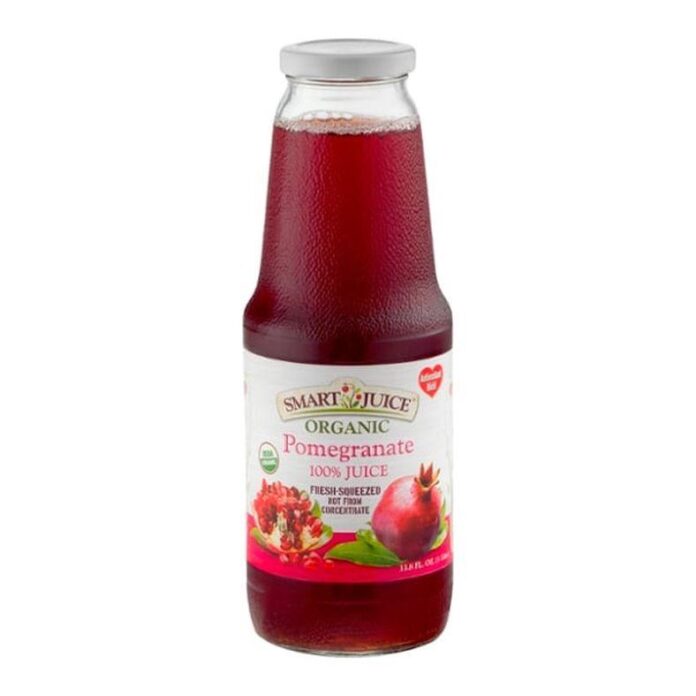In the vibrant realm of health-conscious beverages, few drinks stand out quite like organic pomegranate juice. As a jewel-toned elixir,it boasts a rich history steeped in nutritional lore,celebrated for its robust flavor and impressive health benefits. Revered for its potent antioxidant activity, pomegranate juice captures the essence of wellness in every sip. Yet, amid the allure of its health claims, a closer examination reveals a less-discussed aspect: its sugar content. This article delves into the dual nature of organic pomegranate juice, exploring its powerful antioxidants that combat oxidative stress while also scrutinizing the sugars that might hold implications for those mindful of their intake.Join us as we uncover the balance between vitality and moderation in this ancient fruit’s modern incarnation.
Understanding the Antioxidant Power of Organic Pomegranate juice
Organic pomegranate juice is celebrated not only for its vibrant color and rich flavor but also for its remarkable antioxidant properties. These properties primarily stem from the high concentration of polyphenols, especially punicalagins and anthocyanins, which are natural compounds known to combat oxidative stress and inflammation in the body. This unique juice has been linked to various health benefits, including improved heart health, enhanced memory function, and reduced risk of chronic diseases. The potent antioxidants found in organic pomegranate juice help neutralize free radicals, perhaps reducing cellular damage and supporting overall wellness.
When choosing organic pomegranate juice, it’s vital to consider both its antioxidant activity and sugar content. Organic varieties generally maintain higher levels of beneficial nutrients due to the absence of synthetic pesticides and fertilizers, ensuring that you receive the most out of every sip. Additionally, while pomegranate juice is naturally sweet, being aware of its sugar content helps in maintaining balanced dietary choices. Here’s a quick overview of the sugar content in different forms of pomegranate juice:
| Type of Juice | Sugar Content (per 100ml) |
|---|---|
| Freshly Pressed Organic Juice | 10-12g |
| Bottled Organic Juice (unsweetened) | 8-10g |
| Bottled Organic Juice (sweetened) | 15-18g |

Balancing Benefits: Evaluating Sugar Content in Organic Pomegranate Juice
Understanding the sugar content in organic pomegranate juice is essential for both health enthusiasts and those seeking to enhance their diet. While pomegranate juice is revered for its high levels of antioxidants, it is also naturally sweet, which can increase its overall sugar content. When evaluating the benefits of this juice, it’s important to consider the proportion of sugars compared to its beneficial compounds. Some of the main points to take into account include:
- Natural Sugars: Unlike refined sugars, the sugars in pomegranate juice come with a range of nutrients and antioxidants.
- Health Benefits: The antioxidants present in pomegranate juice, such as punicalagins and anthocyanins, contribute to improved heart health and anti-inflammatory effects.
- Moderation: Consuming organic pomegranate juice in moderation allows you to enjoy its health benefits while keeping sugar intake in check.
When it comes to choosing between different brands of organic pomegranate juice,a quick comparison can elucidate the sugar dilemma. Below is a simple table illustrating the average sugar content found in various organic pomegranate juice products:
| Brand | Sugar content (per 8 oz) | Antioxidant Level (ORAC) |
|---|---|---|
| Brand A | 32g | 2,100 µmol TE |
| Brand B | 25g | 1,900 µmol TE |
| Brand C | 20g | 2,400 µmol TE |
As seen in the table, different brands offer various sugar levels while still maintaining high antioxidant activity. This further emphasizes the importance of not just focusing on sugar content but also considering the overall nutrient profile when making dietary choices.

Unlocking Health Benefits: How to Incorporate Pomegranate Juice into Your diet
Pomegranate juice is not just a flavorful addition to your diet; it’s a powerhouse of antioxidants that can elevate your health. To seamlessly incorporate this vibrant juice into your daily routine, consider these simple ideas:
- Mix it into your morning smoothie for a refreshing boost.
- Drizzle it over yogurt or oatmeal for added flavor and nutrition.
- Use it as a base for salad dressings, enhancing your greens with a tangy twist.
- Add it to marinades or sauces for meats to introduce unique sweetness and depth.
When consuming pomegranate juice, it’s essential to be mindful of its sugar content, especially if you’re monitoring your intake. Here’s a quick comparison of common beverages to help you make informed choices:
| Beverage | Sugar Content (per 8 oz) |
|---|---|
| Organic Pomegranate Juice | 34 grams |
| Orange Juice | 21 grams |
| Apple Juice | 24 grams |
| Cranberry Juice Cocktail | 30 grams |
Balancing the health benefits with sugar intake is vital, so consider diluting pure pomegranate juice with water or sparkling water for a lighter taste while still enjoying its antioxidant properties.

Choosing the Right Product: Tips for Selecting Quality Organic Pomegranate Juice
When it comes to selecting quality organic pomegranate juice, it’s essential to pay attention to a few key factors that can significantly influence its health benefits and overall quality. Look for products that prominently feature 100% organic pomegranate juice on their labels, ensuring that no artificial additives or preservatives are included. Checking for certifications such as the USDA Organic seal can enhance confidence in the product’s authenticity. Additionally, read ingredient lists closely; the shorter, the better. Ideally,your juice should contain only pure pomegranate juice without any added sugars or flavors,allowing you to enjoy the natural antioxidant benefits fully.
Another essential aspect to consider is the processing method of the juice. Cold-pressed juices tend to preserve more nutrients and flavors compared to those that undergo high heat processing. You might also want to pay attention to the sugar content; many brands offer options with lower sugar levels,catering to those who are health-conscious. Lastly, don’t overlook packaging; dark glass bottles or tetra packs can help protect the juice from light exposure, which can degrade its quality. Some tips to keep in mind include:
- Opt for juices that disclose their sugar content clearly.
- Seek out brands that offer transparent sourcing information.
- Consider tasting samples when available to find the flavor that suits you best.
Key Takeaways
the allure of organic pomegranate juice extends far beyond its vibrant hue and refreshing taste. As we’ve explored, its remarkable antioxidant activity stands as a testament to nature’s bounty, offering a myriad of health benefits that can enhance our well-being. Though, it’s equally critically important to remain mindful of its sugar content, which, while naturally occurring, can have implications for those monitoring their intake.
As we raise our glasses to this ruby-red elixir, let’s embrace the harmony of nature and nutrition it represents. Whether you choose to indulge in a glass post-workout or savor it alongside a wholesome meal, organic pomegranate juice can play a delicious role in supporting a balanced lifestyle. Ultimately, the key lies in moderation and informed choices, allowing us to fully appreciate the complexity and richness that this superfruit has to offer. Cheers to savoring its goodness, one sip at a time!






